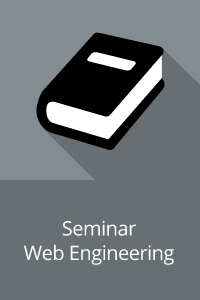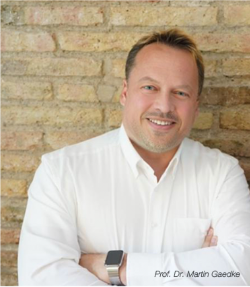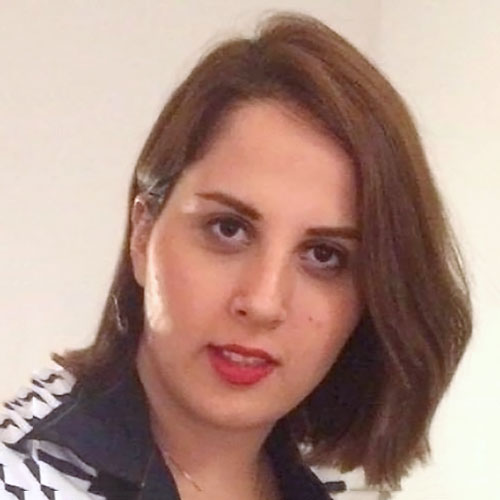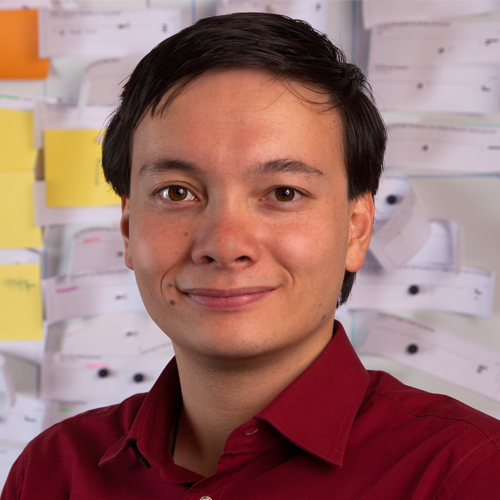
Seminar Web Engineering (SS 2017)
Welcome to the homepage of the Seminar Web Engineering
This website contains all important information about the seminar, including links to available topics as well as information about the seminar process in general.
The interdisciplinary research area Web Engineering develops approaches for the methodological construction of Web-based applications and distributed systems as well as their continuous development (evolution). For instance, Web Engineering deals with the development of interoperable Web Services, the implementation of web portals using service-oriented architectures (SOA), fully accessible user interfaces or even exotic web-based applications that are voice controlled via the telephone or that are represented on TV and Radio.
The following steps are necessary to complete the seminar:
- Preparation of a presentation about the topic assigned to you.
- An additional written report of your topic.
- Each report is reviewed by two or three other particpants.
Seminar chairs



Dr.-Ing. Sebastian Heil
Contact
Participants
- Diplom Informatik (Proseminar/Hauptseminar)
- Diplom Angewandte Informatik (Proseminar/Hauptseminar)
- Bachelor Informatik (Proseminar 500110 /Hauptseminar 500070)
- Bachelor Angewandte Informatik (Proseminar 500110 / Hauptseminar 500270)
- Informatik für Sozial- und Geisteswissenschaftler (Proseminar 500110 /Forschungsseminar 500090)
- Master Data & Web Engineering (Seminar 553170 / Forschungsseminar 500090 / DWE-Seminar 553170)
- High Performance & Cloud Computing (Forschungsseminar 500090)
- Master Informatik (Forschungsseminar M_01)
- Master Angewandte Informatik (Forschungsseminar 500090)
- Master Web Engineering (Seminar Web Engineering 500410)
Registration
You may only participate after registration. The registration opens on 03.04.2017 at 12:00 and und ends on 09.04.2017 at 23:59. There is an overall capacity of 20 slots available. As these slots are usually rather quickly booked, we recommend to complete your registration early after registration opens.Seminar Course in OPAL
Themen (und VSR-Ansprechpartner)
Fragen:
- What is it?
- What is possible?
- Use cases?
Literatur:
- https://www.youtube.com/watch?v=CLjXEdKbqqs
- own research
Fragen:
- How does Jasper work and how does it compare to Alexa, Siri etc.?
- Jasper works based on STT and TTS engines. Wich STT/TTS engines are the most powerful for English/German language?
- Prepare a non-trivial demonstration of Jasper using the provided hardware and show differences of STT/TTS engines.
Literatur:
Fragen:
- What is new?
- What is already supported?
- Which additional support is expected from browser vendors in the near future?
- What is next with ES7, ...?
Literatur:
- ECMAScript 2015 (ES6)
- ECMAScript 2016 (ES7)
- http://www.2ality.com/
- http://es6-features.org/
- http://www.ecma-international.org/ecma-262/6.0/
- Own research
Fragen:
- what is React JS?
- what are the distinctive features of React JS?
- What is Flux and how it is related to react?
Fragen:
- What is it?
- What is its purpose?
- How does it work?
- What are typical use cases?
- How do they relate to each other?
- What are the respective pros and cons?
Fragen:
- What are serverless applications?
- Pros and cons?
- Comparision to regular server-based application?
- Who is offering serverless applications and how?
- Use cases?
Literatur:
- Amazon Lambdas
- Google Cloud Functions
- Own Research
Fragen:
- What is WebAssembly, what are the objectives of WebAssembly?
- What are advantages of WebAssembly over JavaScript?
- Prepare a demo showing the current state of development.
Literatur:
Fragen:
- how IPA works what are the technique?
- what are the security aspects?
- what are the future of the IPA?
Fragen:
- What is Component-based Development?
- How does it work with Angular2?
- How does it contrast from other development methodologies?
Literatur:
Fragen:
- Other Blockchain use cases than Crypto Currency?
- Why is Blockchain be used for these use cases?
- Technical background why and how these use cases use Blockchain?
Literatur:
- E.g. Bitproof
- + Others
Fragen:
- What Data Fusion Techniques exist?
- What is Multi-Sensor Data Fusion?
- How can the concept be applied to the Fusion of Semantic Web Data from multiple web services?
Fragen:
- What is it?
- How does it differ from traditional approaches?
- How can Semantic Technologies be used to process arbitrary data?
Literatur:
Fragen:
- What is it?
- What is its purpose?
- How does it work?
- What are typical use cases?
- How do they relate to each other?
- What are the respective pros and cons?
Fragen:
- What is Node-RED?
- What problems can be solved by Node-RED?
- How can Node-RED be used for the Internet of Things?
Literatur:
Fragen:
- What is oneM2M?
- what problems can be solved be oneM2M?
- How can oneM2M be applied to an IoT usecase?
Literatur:
Fragen:
- What is it?
- What is its purpose?
- How does it work?
- What are typical use cases?
- How do they relate to each other?
Fragen:
- What is it?
- What does it try to solve?
- Who does it solve it?
- Similar approaches?
- Relation to HTTP2?
Literatur:
- https://www.chromium.org/quic
- Own research
Fragen:
- What is it?
- When and how do I use it?
- What are advantages over other existing approaches? How does the transformation between BPMN, WebML and executable code work?
Seminar Opening
Short Presentation
In your short presentation, you will provide a brief overview on your selected topic.
This includes the following aspects:
- What is in your topic?
- Which literature sources did you research so far?
- What is your idea for a demonstration?
Hints for your Presentation
- As rule of thumb you can plan for 2 minutes per slide. Significantly more slides per minute can be difficult to perceive for the audience.
- Prior to creating your presentation, you should think about: What should be the main message of my presentation? What should the audience remember after my presentation?
Based on these considerations you should create your presentation. - Here you can find some useful hints http://www.garrreynolds.com/Presentation/
Seminar Days
Monday, 12/06/2017 13:00 - 18:00 in 1/316
Thursday, 14/06/2017 09:00 - 13:30 in 1/309
Monday, 15/06/2017 09:00 - 13:30 in 1/219
Report
- Important Hint on Citing:
- Any statement which does neither belong to general knowledge nor stem from the author has to be provided with a reference to its original source.
- "When to Cite Sources"Good overview by Princeton University
- Examples for citations can be found in theIEEE Citation Reference
- Web References have to be cited with author, title, date, URL and date of last access. Examples:
- [...] M. Nottingham and R. Sayre. (2005). The Atom Syndication Format - Request for Comments: 4287 [Online]. Available: http://www.ietf.org/rfc/rfc4287.txt (18.02.2008).
- [...] Microsoft. (2015). Microsoft Azure Homepage [Online]. Available: http://azure.microsoft.com/ (23.09.2015).
- The url has to be included as a hyperlink ("clickable").
- Further Information and Hints:
- Please use, as far as possible, the HTML elements which are used in the template. Changes to the CSS file are not allowed and will be ignored.
- Carefully check spelling and grammar of your reports, preferably using software support such as OpenOffice, Microsoft Word or LanguateTool, before uploading it.
- Check that your HTML is valid using the W3C Validator
Review
- Each seminar participant has to review exactly three reports. The reviews are not anonymous.
- Use the review forms provided in the VSR Seminar Workflow, one per report.
- Following the review phase, each seminar participant will receive the three peer reviews of his report and, if necessary, additional comments by the advisors. You will then have one more week to improve your report according to this feedback.
- The seminar grade will consider the final report.
All comments in the reviews are for improving the text and therefore in the interest of the author.


